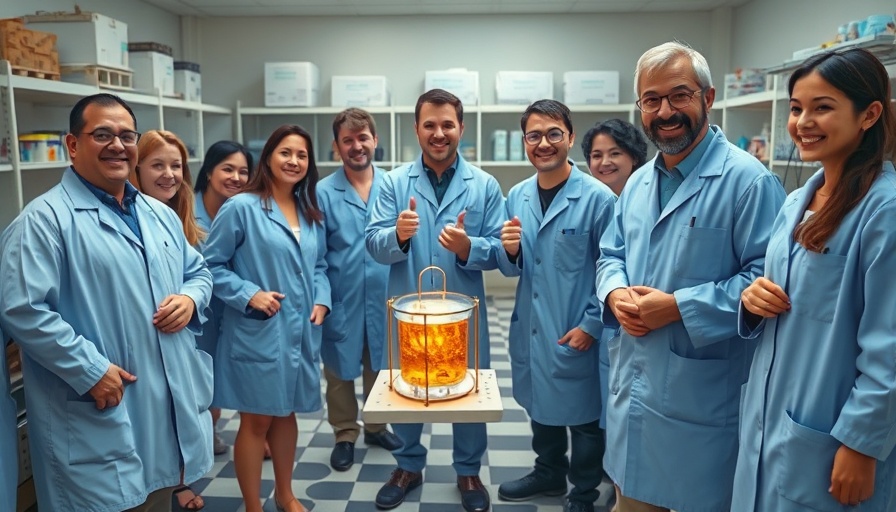
A New Era in Clean Transportation: Sodium Metal Fuel Cells
In the ever-evolving battle against climate change, innovations in energy technologies are becoming pivotal. A significant breakthrough has emerged with the development of new sodium metal fuel cells, presenting a promising alternative to traditional fossil fuels. This innovative technology could fundamentally change the landscape of electric power for transportation, particularly in sectors like rail, regional aviation, and short-distance shipping where alternatives to fossil fuels are urgently needed.
Revolutionizing Energy Density in Transportation
Unlike lithium-ion batteries, sodium metal fuel cells boast a far higher energy density, making them a more efficient choice for transport needs. Developed by a team led by MIT professor Yet-Ming Chiang, these fuel cells utilize liquid sodium—operating efficiently at moderate temperatures between 110 °C and 130 °C—which simplifies the energy generation process. This allows for lighter and smaller designs suitable for applications such as regional planes, which could mark a significant step forward in reducing carbon emissions.
Practical Applications and Future Opportunities
The practicality of sodium metal systems over hydrogen fuel cells lies in their ability to operate without the need for low temperatures or high-pressure environments. The potential uses for these fuel cells are profound. With their high energy density, they can potentially power not just airplanes, but various forms of shipping, thus transforming logistics industries and leading to a cleaner future.
The Concept of Refuelable Versus Rechargeable
One of the most intriguing aspects of the sodium fuel cell is its operational principle, which moves away from the conventional rechargeable battery model. Instead of reversing chemical reactions to recharge, these fuel cells are designed to be 'refuelable.' This means that once energy is extracted, new sodium is simply added to keep the process flowing. This novel approach may encourage broader application in energy systems and logistics, offering logistical ease without sacrificing performance.
Conclusion and A Look Ahead
As we face urgent climate challenges, innovations like sodium metal fuel cells offer hope for a cleaner, more sustainable future in transportation. The ongoing research and development promise to make significant contributions not only to the energy sector but also in mitigating climate impacts across various industries. Understanding and supporting such advancements could be key in leading our world towards a greener horizon.
 Add Row
Add Row  Add
Add 




 Add Row
Add Row  Add
Add 

Write A Comment